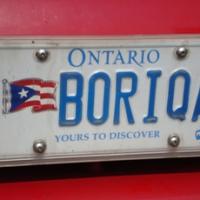Monolingual & Bilingual Dictionaries
从 oliviakw, 2014年9月18日
讯息: 7
语言: English
oliviakw (显示个人资料) 2014年9月18日下午7:50:00
robbkvasnak (显示个人资料) 2014年9月18日下午10:51:28
sergejm (显示个人资料) 2014年9月19日上午4:47:50
The best distionary is one shows the origin language and shows words in your language with the same root. e.g:
mano hand (Latin manus; compare: manual)
BoriQa (显示个人资料) 2014年9月19日上午11:13:15
sergejm:All words in Esperanto are taken from other languages (although they are not always rocognisable).Where does one find, one of these dictionaries? (which includes the origin language)
The best distionary is one shows the origin language and shows words in your language with the same root. e.g:
mano hand (Latin manus; compare: manual)
I would like to get one. Thanks.
sergejm (显示个人资料) 2014年9月19日下午3:21:11
You can find other similar dictionaries.
oliviakw (显示个人资料) 2014年9月21日上午1:51:53
sergejm:All words in Esperanto are taken from other languages (although they are not always rocognisable).I think that is a good idea. In school I learned latin and greek roots,that has been helping me with esperanto a lot. Thanks for the input.
The best distionary is one shows the origin language and shows words in your language with the same root. e.g:
mano hand (Latin manus; compare: manual)

oliviakw (显示个人资料) 2014年9月21日上午1:57:22
robbkvasnak:If you don't have a teacher, it is probably best to go with the bilingual dictionary. But you can also use the online vortaro here or Reta Vortaro and the monolingual PIV (Plena Ilustrata Vortaro) is also online (that is the biggest and mostly widely used dictionary of Esperanto). In the vortaro of lernu you can use EO-EO or EO-English and English-EO (or many other languages). You could try the EO-EO for some words and then check for meaning bilingually. If you get confused, ask us! Bonan ŝancon kaj estu bonvena!thank you, I'll post if I'm having trouble. I realize as a beginner I may be forced to go back to the bilingual dictionary even if I try to only use the monolingual one.

